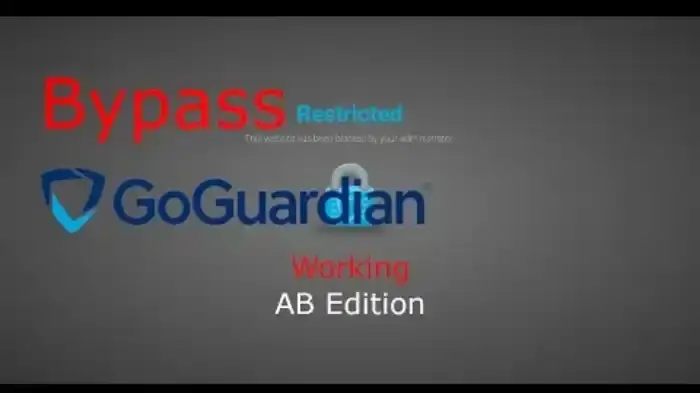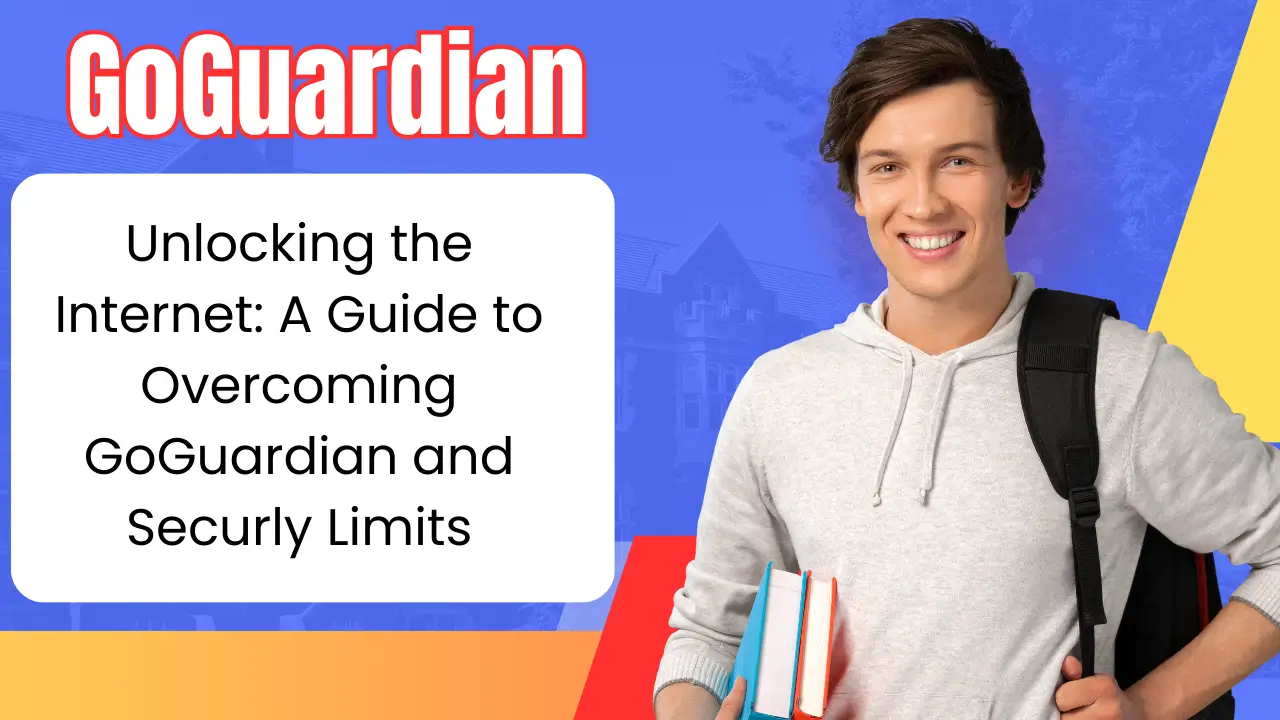GoGuardian
In today’s digital age, web filtering tools are essential for educational purposes as they ensure that students are safe online, and digital systems are being released to help maintain focus during school hours and for more information.
Two popular tools used in schools for this purpose are GoGuardian and Securly. These filters perform important functions and they often restrict students’ access to certain website content. For more information and details on this topic, you can read the full article in our article.
Why Schools Use Web Filtering: The Role of GoGuardian and Security
Web filters like GoGuardian and Securly are commonly used in schools to create a safe and focused online environment. But why are they necessary?

- Safety and Security: These filters protect students from harmful content, such as explicit material, violence, or hate speech, by blocking access to inappropriate websites. Schools are responsible for ensuring that students are not exposed to harmful online risks.
- Maintaining Focus: Web filtering also helps students stay on track by blocking access to distracting sites like social media, gaming platforms, or entertainment websites. This helps prevent time wastage and ensures students use their time effectively for educational purposes.
- Legal Compliance: Schools are legally obligated to protect students from harmful content and ensure a safe digital learning space. Filters help them comply with laws and regulations meant to protect minors online.
Key Features of GoGuardian and Security
Both GoGuardian and Securly are designed to ensure student safety while supporting the learning environment. Here’s how each tool works:
GoGuardian
- Real-Time Monitoring: GoGuardian allows teachers and administrators to monitor students’ online activity in real time. If a student accesses an inappropriate website, teachers can step in immediately.
- Customizable Filters: Schools can customize GoGuardian to block specific websites, categories, or content types based on their needs.
- Classroom Management: It also offers tools for classroom management, including screen sharing and focus mode, to help students stay engaged during lessons.
Security
- Age-Appropriate Filters: Security ensures that students of different grade levels are only exposed to content that is suitable for their age.
- Real-Time Reporting: It provides real-time reports and analytics about students’ internet usage, helping administrators identify any concerns early.
- Flexible Customization: Like GoGuardian, Securly offers customizable filters that can block categories like social media or online gaming.
Both tools provide essential features to ensure that students remain in a safe, productive online environment. However, as with any restriction, students often look for ways to bypass these filters to access content that might be blocked.
You can also read: Transforming the Classroom with iPads: Proven Management Tips for Educators
How Students Bypass GoGuardian and Security
While these filters are in place to protect students, some may attempt to bypass them. It’s important to understand that bypassing web filters can have consequences, but knowing how students do it can help schools better manage these situations.
1. VPNs and Proxy Servers
VPNs (Virtual Private Networks) and proxy servers allow students to route their internet traffic through different servers, which can bypass filters. By masking their original IP address, students may access blocked sites, such as social media or entertainment platforms. However, using VPNs or proxies can violate school policies and lead to potential security risks like malware.
2. Tor Browser and Onion Routing
The Tor browser allows students to browse the internet anonymously, making it difficult for web filters to detect and block access. Tor works by routing traffic through several volunteer-operated servers (a method called “onion routing”), which keeps users’ identities and browsing activity hidden. While this method can be effective, it also comes with risks. Some schools may consider using Tor a violation of their acceptable use policies.
3. DNS Changing
Another method students might use to bypass web filters is by changing the DNS (Domain Name System) settings on their devices. This allows them to redirect their internet traffic through different DNS servers, which can help them access blocked content. While this method can work, it’s not foolproof. Schools may have additional layers of protection to stop DNS changes, and modifying DNS settings could breach school policies.
Risks of Bypassing Filters
It’s important to understand the risks and consequences of attempting to bypass web filters like GoGuardian and Securely:
1. Legal Risks
Bypassing school filters could violate laws or school rules, leading to disciplinary action. Schools put these filters in place for a reason – to protect students and ensure they have a safe online experience. Circumventing these rules may also breach copyright laws or expose students to illegal content.
2. Ethical Concerns
Filters are there to protect students from inappropriate or harmful content. Attempting to bypass these measures can undermine the purpose of the web filters and expose students to potential harm. It’s crucial to think about the ethical implications of bypassing filters, as doing so can put the entire school community at risk.
3. Consequences at School
If caught bypassing web filters, students can face serious consequences, such as loss of internet privileges, detention, or even suspension. Repeated attempts to bypass filters can also harm a student’s reputation with teachers and administrators, making it difficult to rebuild trust.
Responsible Internet Use: Why Adhering to Web Filters is Important
Instead of trying to bypass filters, students should understand the importance of using the internet responsibly. Here’s why:
- Ensuring Safety: Filters are implemented to protect students from harmful content and to help keep them focused on learning. By following the rules, students can make the most of their online resources without exposing themselves to unnecessary risks.
- Academic Integrity: Respecting web filters promotes academic integrity and helps build trust with teachers and administrators. It also encourages students to use the internet for its intended educational purpose.
- Promoting a Positive Online Environment: By adhering to filtering guidelines, students help maintain a positive and productive digital learning environment for everyone.
You can also read: Unleash Your Inner Math: Voice Now and Put the Game-Changing ST Math into Perspective
Alternatives to Bypassing Filters
If you feel the need to access blocked content for educational reasons, there are alternative approaches that are both responsible and effective:
1. Open Communication with School Authorities
If there’s a legitimate reason you need access to a specific website or resource, talk to your teachers or school administrators. They may be willing to make accommodations, particularly if the website supports your academic needs.
2. Requesting Educational Exemptions
Some schools offer exemptions for specific educational resources that are blocked by default. If you believe a website or online tool is vital for your learning, explain why it’s important and ask for an exemption.
3. Exploring Alternative Educational Tools
If the current web filters are limiting your learning experience, consider discussing alternative learning platforms with your school. There may be other resources available that provide the access you need while still ensuring a safe online environment.
Conclusion
Web filters like GoGuardian and Securly serve an important role in ensuring students’ safety and focus while using the internet in school. While it might be tempting to bypass these filters, it’s essential to consider the risks, both legal and ethical, before attempting to do so. Instead, promoting responsible internet use, open communication with educators, and exploring educational exemptions are much more effective and respectful solutions.
You can also read: EHallPass Benefits For School Security System
By following school rules and using the internet responsibly, students can navigate online learning environments safely, access the resources they need, and contribute to a positive digital experience for all.
